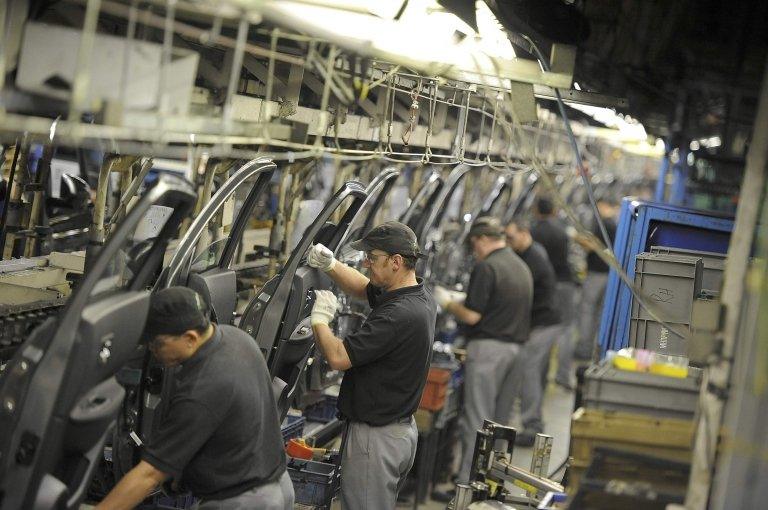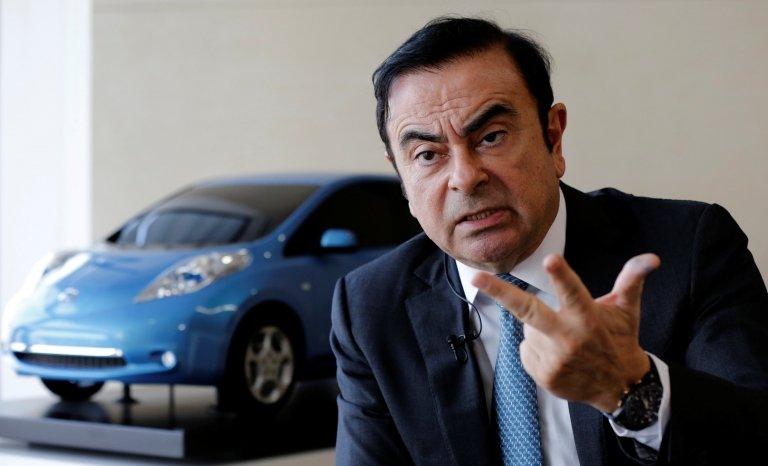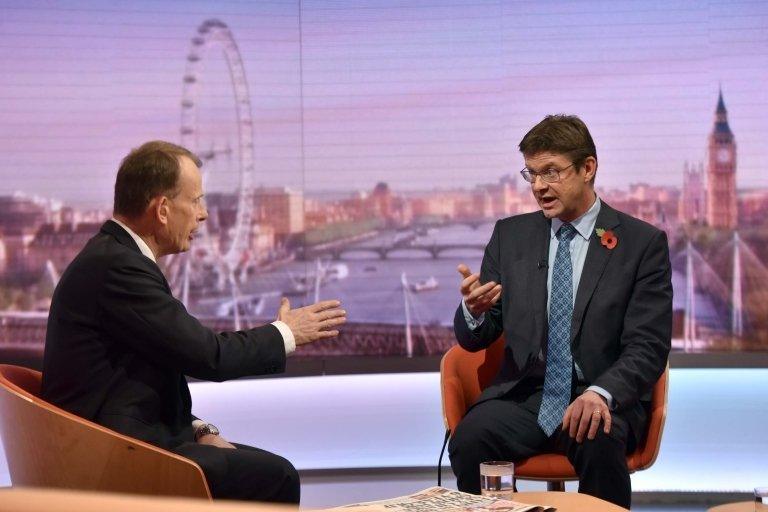What did ministers discuss with Nissan?
- Published

How do you keep and pursue an active industrial policy that doesn't end with government getting a bit too committed to the interests of big business? That is one question raised by a new Freedom of Information Act response, released to Newsnight, about the government's dealings with Nissan.
Nissan's huge Sunderland presence was a major concern after last year's Brexit vote. The plant exists as part of a vast European supply chain, which would be adversely affected by both tariffs and the application of burdensome customs administration. A rough Brexit would be very rough for Nissan. So the carmaker's announcement, on 27 October 2016, that it was staying in the UK was a huge relief for ministers.
But there are questions about what the government promised the company. A letter was sent from the government to Nissan before the announcement - and we still do not know what was in it. To find out, Newsnight applied for the letters under the Freedom of Information Act. I won't leave you in suspense; we didn't get what we wanted.
The government is committed to releasing the letter, but not yet. It contains, we are told, commercially sensitive information, and will be published as soon as time has eroded its sensitivity. That may be a long time. Nonetheless, the correspondence we did get contains a few noteworthy things.

Carlos Ghosn,, chair and chief executive of the Renault-Nissan Alliance
Nissan's three wishes
The most significant document is a letter from Paul Willcox, chair of Nissan Europe, sent to Greg Clark, the business secretary. The letter is undated, but seems to have been sent in the first half of October. It follows up on a meeting between the two men. (We have asked the business department for details of the precise timing of the letter.)
The documents reveal that, on October 14, they also held a conference call. On October 21, the week before Nissan's announcement of its decision to stay in the UK, Mr Clark travelled to Japan to visit Nissan's headquarters.
There is a lot of chatter in the FOIA release about logistics of meetings, but the letter from Mr Willcox- despite having a large portion missing - is the only substantive document which reveals any of what they actually discussed. What is striking is how much of what Nissan asked for in that letter has since become government policy.
The letter makes the point that Nissan is "the global leader in electric cars". On that topic, the Japanese company suggested three noteworthy things.
First, it proposes new requirements on councils to make sure there are enough electric car charging points: "the planning framework should support charging deployment".
Second, it noted Germany had allocated "€200m directed solely at quick-charging infrastructure" as part of a €1bn programme for electric vehicles.
Third, the letter notes: "I reiterate my comment in our meeting that the government could look at being much more aggressive in the distinction it draws between EV and more polluting models". In short: tax incentives to encourage the purchase of electric vehicles.
Finally, the letter also spends a fair amount of time boasting about how much of Nissan's autonomous driving research currently happens in the UK.

Greg Clark speaking to Andrew Marr the week of the Nissan announcement
Ministers decide
A few weeks later, on October 24, the government began a consultation on new powers to require petrol stations to have electric charging infrastructure - not exactly what Nissan asked for, but a measure with the same objective.
A month later, at the the Autumn Statement, the chancellor announced £80 million for "charging infrastructure". The government committed to spending £25 million in 2020 on tax incentives to encourage take-up of ultra-low emitting vehicles - and tax relief on charging points.
In addition, the chancellor also announced that £100 million will go to new UK testing sites for autonomous and connected vehicles.
We cannot read anyone's minds to know what the connection between the Nissan request and the government's action was. These were not enormous breaks with past policy. But Mr Willcox's letter shows they had spoken about some of these topics already, but did not hint that they expected the government to agree with them.
Conversely, one should not assume that Nissan must have needed a lot of persuading to stay and that their decision to remain is proof of anything. Sunderland is a cracking, hyper-efficient plant with an established, skilled workforce - and the devaluation of recent sterling has lowered costs. There is a huge weight of capital tied up in the north-east, too.
Regardless, these letters do raise a big policy issue: reasonable people can differ about how active an industrial policy should be. The government argues it should support sectors of strength but not individual companies. Officials argue that this is what is happening here. This public spending helps all car companies - not just Nissan. But Nissan's letter is pretty clear - it helps Nissan in particular.
This concern is why lots of officials, particularly in the Treasury, worry about whether active industrial policy is a bad idea that could mean the interests of government might get muddled with the interests of individual big businesses. An active industrial policy without a drift into corporatism is a very fine line to tread.
p.s. I made the request in October. To comply with its statutory obligations, the business department should have been filed a return by the end of November. We received the documents this week; the bundle arrived this evening - on a Friday at 6:11pm, at the end of a very busy news week... Welcome to government.